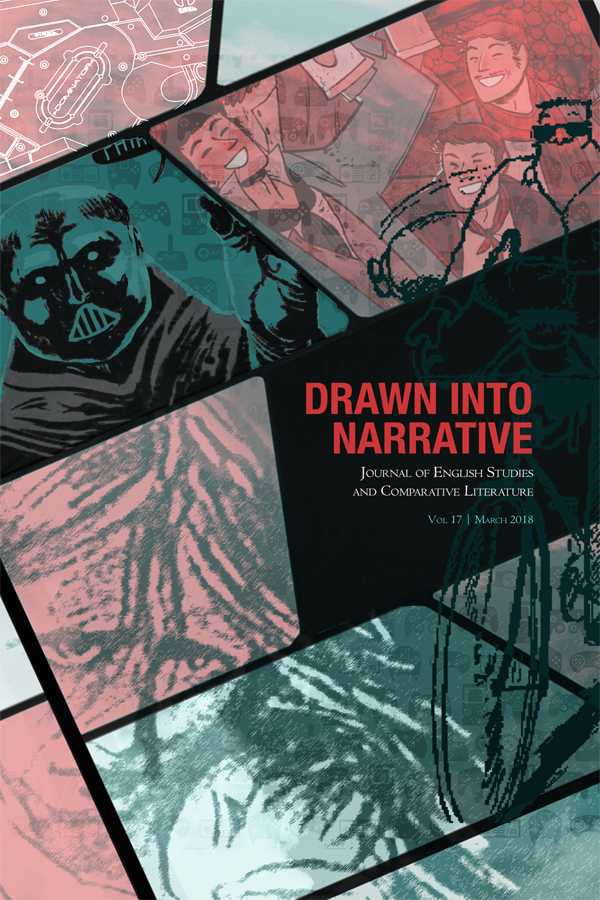EXPOSING HEGEMONIES AND DISRUPTING CODES IN DOKI DOKI LITERATURE CLUB!
Abstract
Doki Doki Literature Club! explores the reader-cybertext power dynamic and locates its influence within the larger landscape of the developing genre of video games. It uses the inherent intermedial and ergodic nature of video games to augment a narrative of powerplay unique to the medium. This paper uses a psychoanalytic framework to illustrate how the Uncanny imagery crafted by the game’s programmed glitches and manipulation of its ludic structure exposes and disrupts hegemonic tropes found in visual novel dating simulators. These manifestations of the Uncanny, juxtaposed with the aesthetic of a dating simulator, create an environment wherein the player is sexually and narratively castrated—stripped of the right to sexual expression and narrative control which are conventionally exercised in dating games. Moreover, it presents the question of authorial agency and primacy not only in an interactive medium but also in a greater literary tradition constructed and held up by inescapable mythic archetypes.Doki Doki Literature Club! (DDLC) is a visual novel by Dan Salvato that received a considerable amount of critical attention for its unexpected nature as a psychological horror game. Dating simulators which incorporate elements of horror or tragedy are not new; Key, a prominent game development studio in Japan, has produced staples of the dating sim genre like Air, Kanon, and Clannad which are all known for their narratives of personal tragedy and drama. Internet cult hits like Hatoful Boyfriend: A School of Hope and White Wings and Dream Daddy: A Dad Dating Simulator incorporate horror elements like gore, torture, and mind control into their branching plot lines, and these subversive elements have only contributed to their popularity.
Published
2019-07-03
How to Cite
ANTIOQUIA, Myrtle Joy A..
EXPOSING HEGEMONIES AND DISRUPTING CODES IN DOKI DOKI LITERATURE CLUB!.
Journal of English Studies and Comparative Literature, [S.l.], v. 17, july 2019.
ISSN 0119-1721. Available at: <https://journals.upd.edu.ph/index.php/jescl/article/view/6792>. Date accessed: 06 sep. 2025.
Issue
Section
Articles


